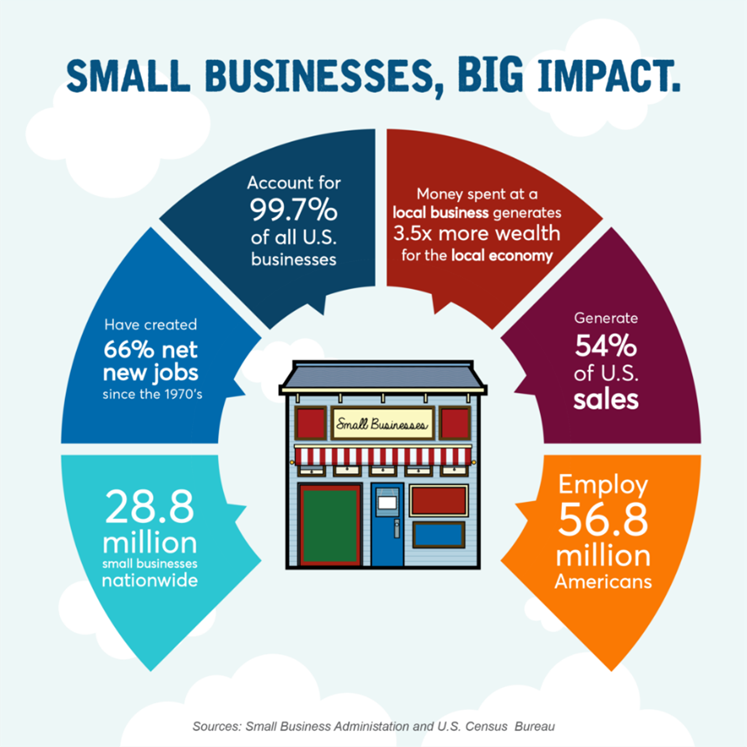The role of small businesses in the U.S. economy is both significant and transformative. Often referred to as the backbone of America, small businesses are vital to job creation, innovation, and community development. They represent a massive portion of the country’s economic output and continue to shape local and national economies. In this blog, we’ll explore how small businesses contribute to the U.S. economy and why they matter now more than ever.

1. Small Businesses Drive Employment
Small businesses are a major source of employment in the United States. According to the U.S. Small Business Administration (SBA), there are over 33 million small businesses, and they employ nearly half of the private workforce. These businesses provide jobs in local communities and often give opportunities to people who may face barriers in the corporate job market.
Whether it’s a local bakery, an IT consulting firm, or a neighborhood auto repair shop, each plays a part in reducing unemployment and boosting household income levels.
2. Innovation and New Market Creation
The role of small businesses in the U.S. economy also includes being a key driver of innovation. Small businesses tend to be more flexible, responsive, and creative when compared to large corporations. Startups and entrepreneurs often lead in areas like:
- Tech innovation
- Green energy
- Digital services
- Niche product markets
Without the red tape and long approval chains, small businesses are free to test ideas and bring new products to market faster.
3. Contribution to GDP and Tax Revenue
Small businesses contribute significantly to the nation’s Gross Domestic Product (GDP). Their combined output plays a critical role in national income, and they generate billions of dollars in tax revenue annually. These funds help improve infrastructure, education, and public services.
By fueling local economies, small businesses also keep money circulating within communities, increasing financial resilience and reducing economic inequality.
4. Community and Cultural Impact
Unlike large corporations, small businesses are deeply embedded in their communities. They:
- Create a sense of local identity
- Support community events and charities
- Foster relationships and customer loyalty
The role of small businesses in the U.S. economyhttps://en.wikipedia.org/ extends beyond money. They preserve regional cultures, promote diversity, and support community development.
5. Support for Supply Chains and Big Enterprises
Many large enterprises rely on small businesses for supplies, services, and subcontracting. These partnerships create robust supply chains and help small companies gain access to larger markets.
Whether it’s a tech giant outsourcing design work to a small graphic design firm or a restaurant sourcing produce from a local farm, the interdependence strengthens the overall economy.
Conclusion
The role of small businesses in the U.S. economy is irreplaceable. They fuel employment, spark innovation, contribute to GDP, support communities, and strengthen supply chains. As the economy evolves in the digital age, supporting and empowering small businesses should remain a national priority.
If you’re an entrepreneur or small business owner, your work is more than just a career—it’s a cornerstone of America’s future.
Meta Description:
Discover the vital role of small businesses in the U.S. economy—from job creation and innovation to local community development and GDP growth.
